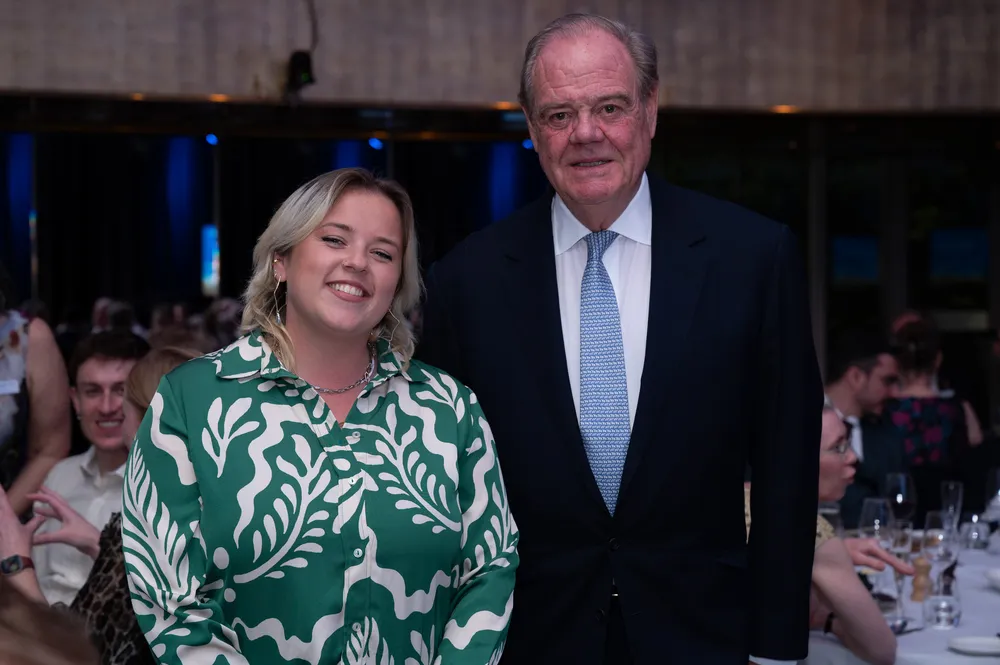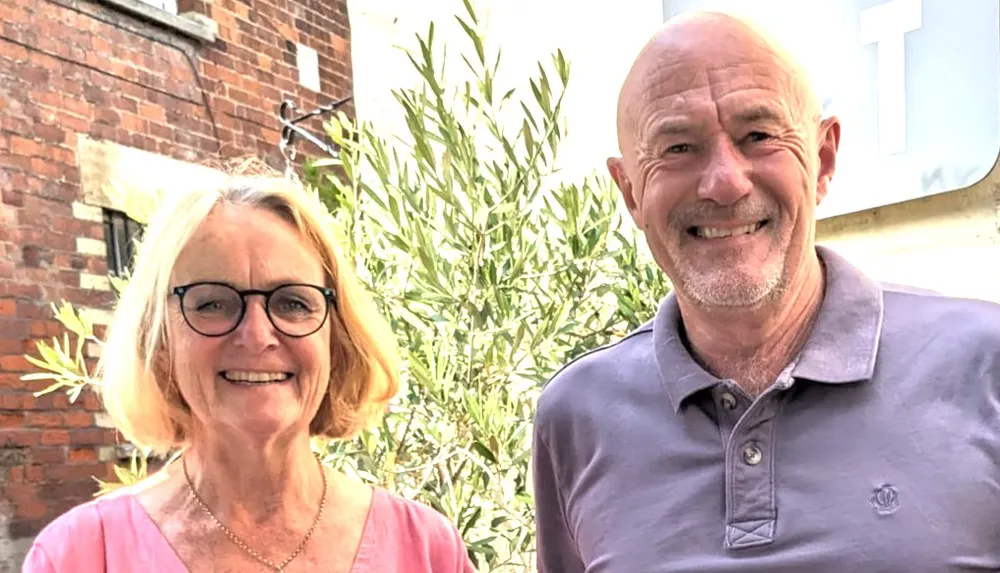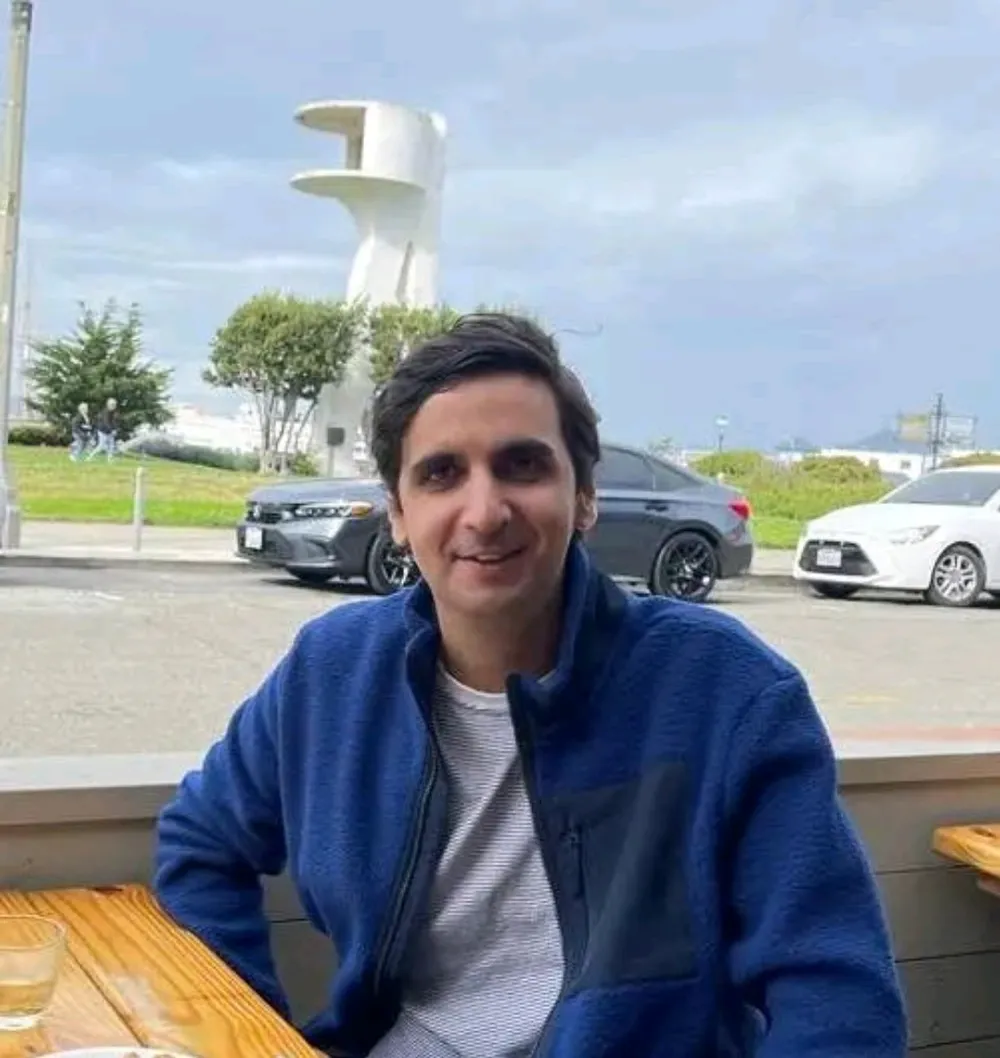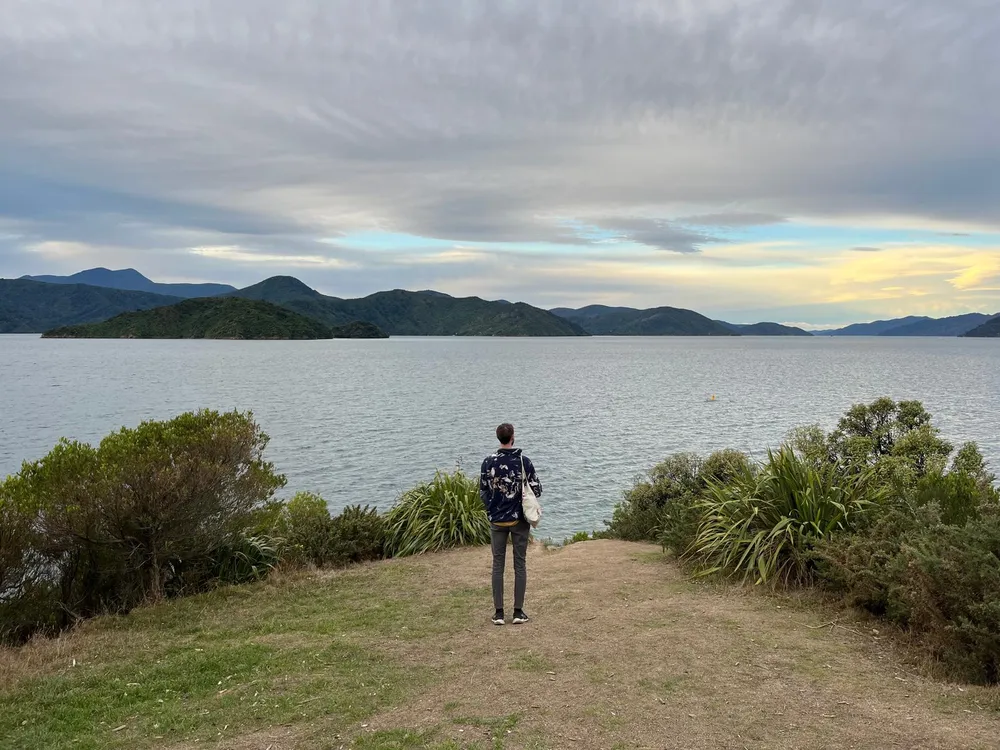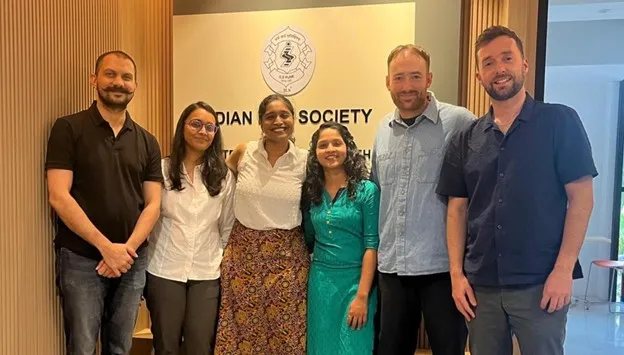The convention was an inspiring celebration of innovation that reminded me of the incredible breadth of work happening across Australia and beyond. From the conference opener, a talk on moral alchemy by Dr Susan Carland (VIC 2019) recognising Winston Churchill’s complex legacy, to the final keynote speech by Churchill’s grandson, Jeremy Soames, the weekend set the tone that difficult topics would not be left unaddressed. Such topics ranged from AI in schools and clown doctors in aged care, to women in trades and homicide prevention and I left energised and brimming with new ideas and reflections on my own work.
A session from Chris Bush (VIC 2024), teacher and AI-in-education expert, explored how AI is reshaping learning and urged educators to “steer the tide responsibly.” This echoed a conversation I’d had with Courtney King (Sexuality and Relationships Educator at Rubix Support) in Victoria, about the future of disability-inclusive sex education. She suggested AI and VR could offer safe, adaptive environments for people with intellectual disabilities (PWID) to practise communication and intimacy, offering quasi-exposure therapy for social anxiety. Bush’s AI tutor 'Mitch' made me imagine a sex-ed equivalent 'Talkie' which could offer a non-judgemental space for PWID to practise consent language or critically reflect on pornography.
I was reminded of Ben, a man with Down syndrome who spoke at the Spark conference I attended in Adelaide as part of my Fellowship travels, whose confidence and communication skills flourished after using an app to practise social exchanges. At a co-design session with Thorne Harbour Health, Inclusion Melbourne, and Rainbow Rights we discussed similar ideas in the context of online 'hookup' culture.
Matthew Parsons from the Accessible Pride Project at Thorne Harbour Health emphasised that PWID have the same right to connection as anyone else - and that instead of teaching fear around online dating, we should focus on supporting people to navigate dating apps safely and confidently.
This commitment to promoting dignity of risk was echoed by another speaker, Bernie Shakeshaft (VIC 2014) founder of BackTrack, who spoke passionately about not only keeping vulnerable young people “alive, out of jail” but also “chasing their hopes and dreams.” Another shared theme was Bernie’s peer-education model; he shared a story of how when a community was struggling with youth crime it was the young people he had mentored who ultimately found and implemented the solution.

